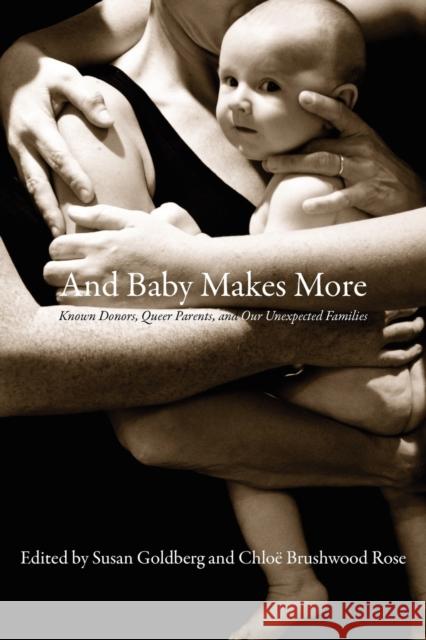And Baby Makes More: Known Donors, Queer Parents, and Our Unexpected Families » książka
And Baby Makes More: Known Donors, Queer Parents, and Our Unexpected Families
ISBN-13: 9781897178836 / Angielski / Miękka / 2010 / 235 str.
And Baby Makes More: Known Donors, Queer Parents, and Our Unexpected Families explores the role of the "known donor" in the queer family structure: what happens when would-be dyke moms or gay dads ask a friend or acquaintance to donate sperm or an egg, or to act as a surrogate? A quirky, funny, and occasionally heartbreaking collection of personal essays, this book offers an intimate look at the relative risks and unexpected rewards of queer, do-it-yourself baby-making, and the ways in which families are re-made in the process. With no clear models to follow, these new versions of the queer family are creating their own, addressing questions such as: What's the difference between being a donor and being a parent? What happens to non-biological parents when a known donor is also part of the picture? When and how does biology count-or does it? Why do parents choose known donors, and what happens if things get ugly? And what does all this mean for queer families already facing extraordinary social pressures? The contributors-donors, biological and non-bio parents, and their children-offer provocative, nuanced insights into what it means to be or use a known donor and how queer families are being reconceived to include new roles, new rules, and kinship ties that transcend biology.
And Baby Makes More: Known Donors, Queer Parents, and Our Unexpected Families explores the role of the "known donor" in the queer family structure: what happens when would-be dyke moms or gay dads ask a friend or acquaintance to donate sperm or an egg, or to act as a surrogate?A quirky, funny, and occasionally heartbreaking collection of personal essays, this book offers an intimate look at the relative risks and unexpected rewards of queer, do-it-yourself baby-making, and the ways in which families are re-made in the process.With no clear models to follow, these new versions of the queer family are creating their own, addressing questions such as: Whats the difference between being a donor and being a parent? What happens to non-biological parents when a known donor is also part of the picture? When and how does biology count-or does it? Why do parents choose known donors, and what happens if things get ugly? And what does all this mean for queer families already facing extraordinary social pressures?The contributors-donors, biological and non-bio parents, and their children-offer provocative, nuanced insights into what it means to be or use a known donor and how queer families are being reconceived to include new roles, new rules, and kinship ties that transcend biology.











